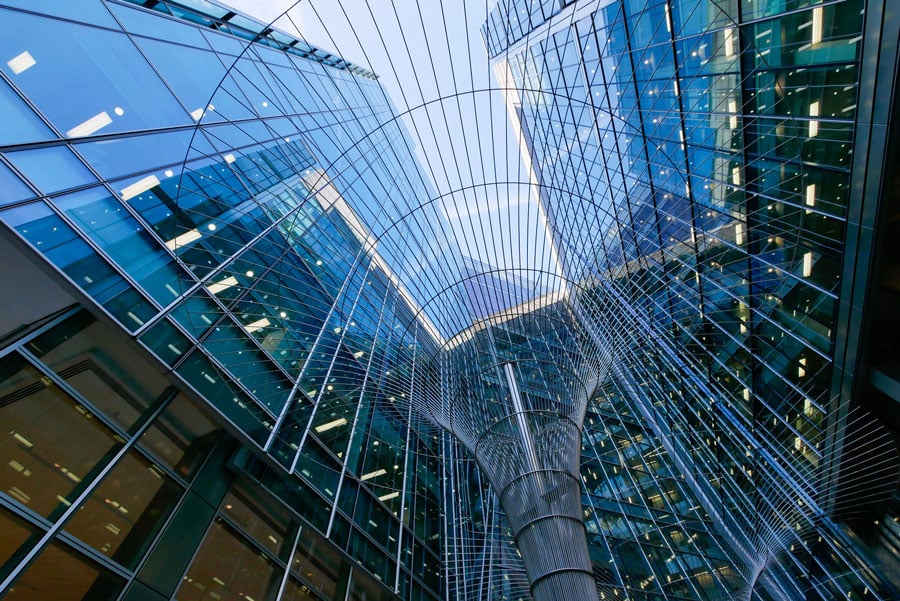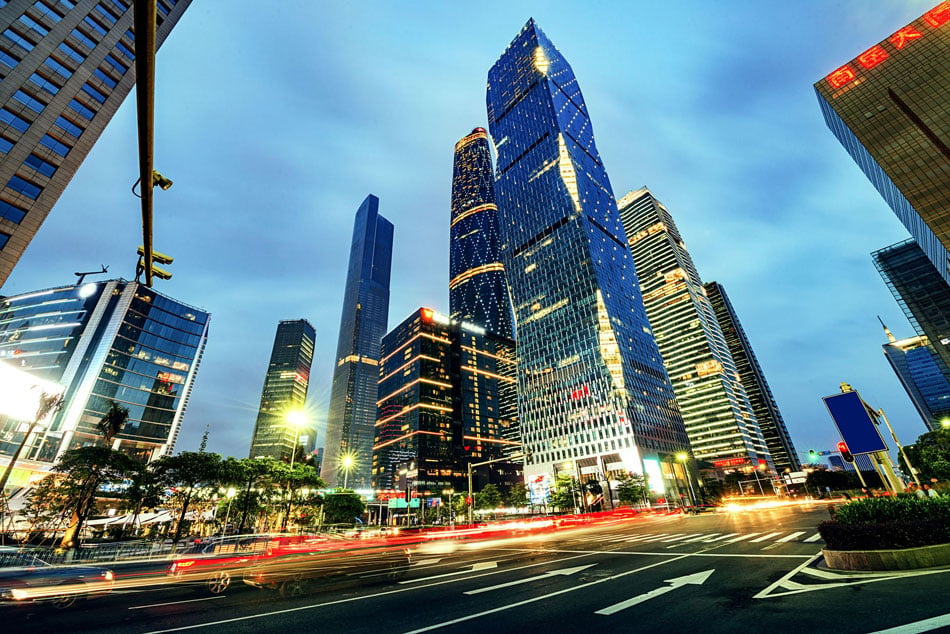Thriving through disruption

In the next edition of Grant Thornton’s series on trending international insights, we examine how disruption can be an opportunity for growth and differentiate mid-market firms from competitors.
Instability has come to define the global business landscape. Today, business leaders face an unprecedented array of both routine operational challenges and unpredictable global or regional shocks – challenging their ability to function and grow. From infrastructure breakdowns and cyberattacks to climate disasters and volatile shifts in global trade, disruption has become a daily reality.
The economic toll of this instability and disruption is staggering. Cybercrime alone is projected to cost the global economy $1.2 trillion annually by the end of this year – a figure that dwarfs even major infrastructure failures. The power outage that plunged Spain and Portugal into darkness in April cost an estimated €1.6 billion ($1.82 billion).
In the UAE, the stakes are especially high: the country ranks among the top globally for data breach costs, and recent incidents have shown that regulatory compliance, such as with the UAE’s Personal Data Protection Law (PDPL) and National Cybersecurity Strategy, does not guarantee resilience. Organisations must go beyond checklists to build cyber-resilient ecosystems.
These events underscore the growing vulnerability of modern enterprises, especially as global interconnectivity deepens reliance on critical supply chains and complex tech networks. The UAE’s rapid digital transformation, driven by initiatives such as Smart Dubai and Vision 2031, has deepened reliance on technology and complex supply chains, making adaptability a strategic advantage.
And that advantage matters more than ever. With 53.9% of mid-market firms identifying sector competitiveness as a constraint on growth, according to our latest global International Business Report (IBR) research. Businesses that can anticipate, absorb, and adapt with confidence are better positioned to protect assets, maintain customer trust, and seize opportunities – while competitors scramble to recover.
Three forces of instability challenging mid-market firms
This year, three key forces have exposed vulnerabilities across systems, supply chains and global markets. These are the areas mid-market businesses are most focused on – and where strategic investment is driving growth through disruption.
Systems and infrastructure
Reliable tech infrastructure is essential, but cyber threats are escalating. Our latest IBR research shows that 55.4% of mid-market firms are concerned about cybersecurity and digital risk – the highest level since tracking began in Q1 2024.
And the risks are real – ransomware attacks on UK retailers earlier this year caused one supermarket estimated losses of £300 million. While a global car manufacturer was forced to shut down systems and halt production worldwide, putting jobs at risk and causing chaos throughout the supply chain and retailer network.
In the UAE, the government’s push for digital innovation has made businesses prime targets for ransomware, phishing, and AI-driven attacks. This has resulted in compliance, with national standards like the UAE’s Information Assurance Standard (IA V2) and National Cybersecurity Policies, becoming a strategic imperative for companies across the region.

Our IBR research shows firms aren’t standing still – 68.0% of mid-market firms around the world are investing in technology, with over half (55.3%) prioritising cyber security upgrades. They’re also using tech to fuel transformation:
- 59.7% are introducing advanced technologies
- 52.4% are upgrading software
- 67.4% are investing in AI to drive innovation
These investments signal a shift from a base line of defence to opportunity. Firms are building smarter, more agile systems, not just to withstand disruption, but to grow through it.
As the connectivity and power of systems and processes continues to increase, the investment and attention required by mid-market firms to keep pace should not be underestimated.
"To build true resilience against cybersecurity disruptions, start from the ground up: embed resilience principles across technology, processes and people. Establish continuous visibility and track meaningful metrics to drive ongoing improvement. Resilience and compliance aren’t one-off achievements; small, consistent actions can deliver a significant impact." – Kabir Dhawan, Partner – Consulting, Grant Thornton UAE
Extreme weather
Extreme weather is no longer a distant threat; it’s a growing and immediate challenge for mid-market firms. From floods and wildfires to heatwaves and hurricanes, these events are disrupting operations, damaging infrastructure, and threatening supply chains.
Our latest IBR research shows that 49.2% of firms now see environmental concerns as a constraint on growth – up 3.2 percentage points since Q2 2025. And the financial impact is escalating.
In recent years, the UAE has witnessed extreme weather events becoming increasingly apparent and substantial, a marked shift that may signal a new climate trend, interrupting the nation’s longstanding reputation for mild conditions.
Rising temperatures, sandstorms, and flash floods are increasingly impacting business operations and supply chains. UAE businesses are responding by integrating sustainability and climate resilience into their strategies, aligning with national goals for climate action and green growth.
In the US, the National Oceanic and Atmospheric Administration’s (NOAA’s) National Centers for Environmental Information (NCEI) reported 27 major weather and climate disasters last year, costing approximately $182.7 billion. January’s wildfires in Los Angeles alone are estimated to have caused $250-275 billion in economic losses.
With such events becoming more frequent and more unpredictable, the effects can range from damage to physical infrastructure and logistics to an increase in insurance and recovery costs and an erosion of customer confidence – showing that together the impact is even more far reaching.
In response, firms are recognising that sustainability isn’t just about risk management or responsibility – it’s about resilience and competitive edge. While most mid-market firms are maintaining or increasing their investment in sustainable initiatives, as seen in our report Scaling sustainability, 41.6% cite market competition as a key driver. This shows that sustainability is becoming a strategic lever – not just to keep pace, but to stand out and grow in a disrupted world.
Security of supply chains
Effective supply chains are the life blood of mid-market operations, but they’re under increasing strain. From geopolitical tensions and shifting trade policies and trade routes, to climate disruption and logistical bottlenecks, firms are facing a growing number of challenges that threaten the flow of goods, services, and information.
Our latest IBR research shows that 48.7% of mid-market firms see supply chains and complex procurement systems as a constraint on growth. This year’s wave of new tariff regimes has forced many businesses to rapidly reconfigure supply routes, source alternative suppliers, and enter new markets – often with little warning.
The impact is already being felt:

These disruptions are not just logistical, they’re strategic. Delays, shortages and rising costs can erode margins, damage customer relationships, and stall innovation. And in a post-globalisation era, where trade is increasingly fragmented, agility and adaptability are key.
A cornerstone of the UAE’s trade and logistics infrastructure, Jebel Ali Port plays a pivotal role in connecting supply chains across continents. Its scale and strategic location make it a vital artery for regional and global commerce. When operations are disrupted by extreme weather, infrastructure strain or geopolitical shifts, the consequences are immediate and widespread.
In response, UAE businesses are rethinking procurement strategies, expanding supplier networks and investing in technology to build smarter, more adaptable supply chains that can absorb shocks and maintain momentum.
Firms that can navigate complexity through a detailed understanding of their supply chains, maintain and grow a range of supply relationships and build flexibility into their procurement strategies will be better equipped to thrive. Our Trade in transition article outlines a five-point plan to help firms strengthen supply chains and turn disruption into opportunity.
Thriving through disruption
As the environment business leaders operate in is set to be continually fractured, firms must build resilience and evolve. The nature of disruption – both daily and deeply unpredictable – requires a new kind of agility. Those able to maintain operations, pivot quickly, and spot new opportunities amid the chaos will gain a competitive edge. In the UAE, where innovation and adaptability are national values, differentiation is how firms can shape disruption to their advantage.
Look out for more regular content in our “Trending Topics” series. For tailored support or guidance on navigating the disruptive environment in the UAE, connect with Grant Thornton UAE’s dedicated specialists.
Speak to our experts
